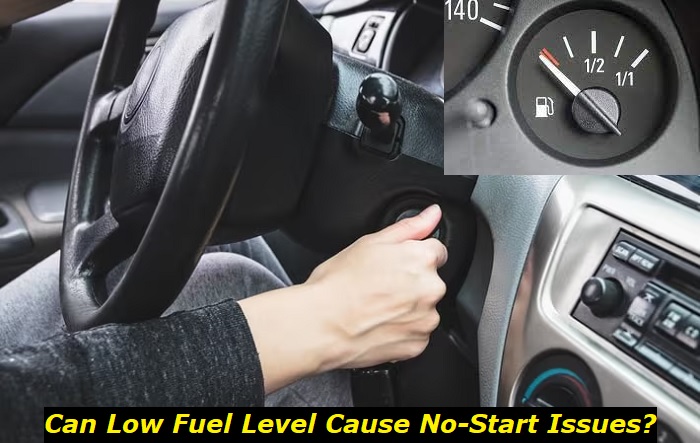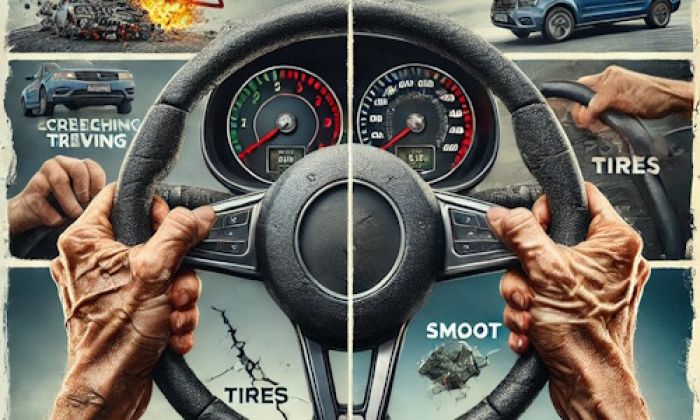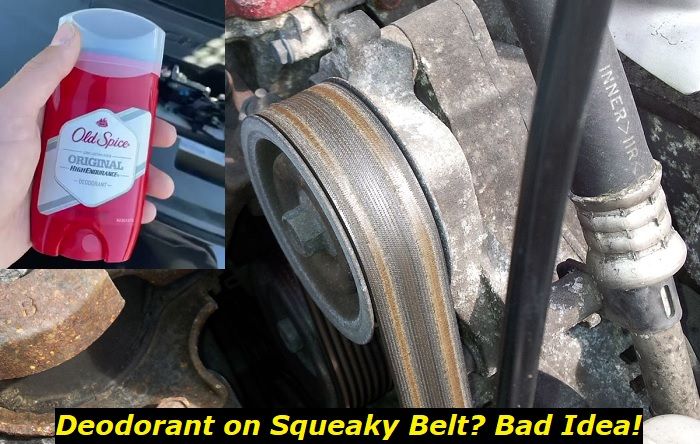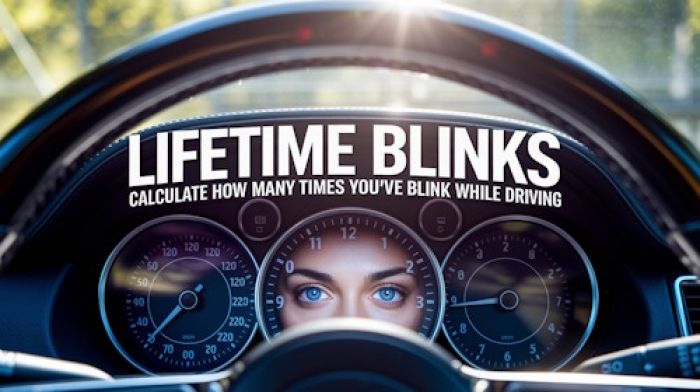Low gas level shouldn't cause no-start issues or other immediate problems but it negatively affects the ability of your vehicle to drive perfectly. Also, it can affect the cleanliness of your injectors and other important systems. When the gas level is low, your fuel pump is overheating which is not going to add any health to it.
Fuel-related mistakes highlights
- Level of importance:Medium
- Can you drive?Usually, yes
- DIY inspection:Possible
- DIY repairs:Mostly,impossible
- Price of repair:$100 - $650
- Commonreasons:Wrong fuel, wrong repair procedures
- How to fix:Never drive the vehicle with the wrong fuel in the tank, always go for professional help

No-start issues because of low gas level - possible?
Actually, it's not really the direct consequence of the low gas level that your vehicle doesn't start. Unless we are talking about the no-gas situation. If there is no gas at all, the car won't start because no fuel is injected into the cylinders, so there is just nothing to burn and the engine can't work.
But if there is at least a quart of gas in the tank, the fuel pump will still do everything possible to get it directly to the injectors and your car will start. Of course, there are several important things to consider here, but still, you should understand that the vehicle won't like the idea to drive when there is just a little gas in the tank.
Here's what happens:
- the level of gas falls to the critical possible point and the fuel pump just can't get it correctly;
- a lot of air may start going to the injectors with the fuel and it will negatively affect the work of the engine;
- the bottom of the fuel tank contains all the contaminants and debris that accumulated there for all the years you've been driving the vehicle;
- this debris will also attack the fuel pump and eventually, the pump may give up;
- it's hard for the vehicle to keep the pressure in the system correct when the gas level is too low;
- the overall performance of the car may be affected and the engine may work pretty harshly.
As you may notice, I didn't mention that the vehicle will not start when the gas level is low. That's because the no-start issue is not directly connected with the low level. If there is still some gas in the tank, the fuel pump will do everything it can to deliver this gas to the injectors. It doesn't mean that the no-start issue is still impossible.
You should know that the low gas level will affect several important units in the vehicle. And these units, in turn, may affect the performance of the engine and sometimes even cause no-start problems. So, indirectly, low fuel levels can easily lead to no-start issues. While directly, the level of gas in the tank will cause the no-start problem only when it's at zero.
What are the consequences of low gas levels in your car?
I personally knew several people who loved to drive their trucks and SUVs till the last drop of the gas was burnt. They even had canisters in their trunks to walk to the nearest gas station if they ran out of gas completely. Actually, all of them had pretty bad problems with their vehicles. In most cases, this would mean that they would spend much more money than other drivers for repairing and maintaining their cars.
Here's what can go wrong if the gas level is often low in your vehicle:
1. Fuel pump overheating and failing
The fuel pump is not eternal and it's going to fail someday. But if you make it work with a low gas level, it will overheat. The problem is that the fuel pump is cooled by the fuel. If there is no fuel in the tank, the fuel pump is heated up quite badly and can easily fail.
This will happen sooner than it would happen if you filled the tank more often. Of course, this is not going to happen with every car that sometimes has a low fuel level. It just takes up the risk of the fuel pump failing.
2. Debris from the fuel tank can affect your fuel pump
Another risk for the fuel pump in this case is the contamination that rests at the bottom of your tank. When the fuel tank is half full, the contaminants aren't bothered - they just rest where they are. But when the fuel pump starts sucking the last drops of fuel from the tank, it will inevitably suck some debris along with it.
First, this will clog the small fuel pump filter. And then, it will totally kill the tender fuel pump. After it's clogged, it can't work anymore.
3. The fuel filter may be quickly contaminated
While the fuel filter serves to eliminate different contaminants from the fuel, it won't be happy if the pump sends thousands of small particles directly to it. The filter may quickly lose its ability to clean the fuel and get clogged. This will affect the fuel pressure in the system and may even lead to no-start issues.
So, even if the pump survives this challenge, the fuel filter may die quickly after it's attacked by thousands of small hard particles.
4. Fuel injectors may quickly clog
Let's imagine your fuel filter is not functional anymore and it sends all the contaminants through to the injectors. Your fuel injectors are very tender and are made to work exclusively with clean fuel. If the fuel is contaminated, it will get clogged almost immediately.
Of course, this may lead to no-start issues and other problems. And even after you refill some fresh fuel into the tank, your injectors will still be clogged and require proper cleaning and sometimes even replacement.
How many miles can you drive once the low-fuel-level light is on?
In different cars, the low-fuel-level light has various settings. But it's an industry standard that you can drive about 50 miles on the highway and 35 miles in the city traffic once the low-fuel-level light is on the dash.
It means you have more than enough miles to find a proper gas station and buy some fuel.
But you should know that once the light is on, the fuel level in your vehicle is now critical and you better don't wait for too long before you go to the gas station. First of all, you can just forget to go to the gas station tomorrow and drive to work and then get stranded in the middle of the road. Secondly, your fuel pump may now be starting to get its effects from the low fuel level.
So, once you see that warning light, you better immediately plan your route through the nearest gas station. This will save your vehicle from all those unpleasant problems that may affect the important units and modules in the vehicle.
My fuel level is low but I can't get premium
Very often people are in a situation where they have the fuel level warning light on the dash but the only gas station that is available in their area sells now only regular gas. What should you do in this case? Maybe, it's worth driving to some other gas station that is located 30 miles away?
Well, no, you should buy a couple of gallons of regular now and then drive to the nearest gas station and fill the full tank of premium. Driving with an almost empty tank is more dangerous for your car than driving with regular fuel even though it stays in the manual that you should only buy premium.
Any gasoline-powered car can easily drive with regular fuel in its tank just by losing some part of its power. It won't damage your vehicle unless you buy that fuel too often. But if you only have access to regular on the highway and you don't know when you are able to buy premium gas, you should fill the tank with regular. Although this carries some risks, the risks of no-fuel or low-fuel problems are much more aggressive for your vehicle.
Final words
You should be ready to fill up the fuel tank in your car once the fuel level gauge is showing a low level. I usually buy the full tank of fuel once the needly is approaching the last quarter of the gauge. This helps me to always have the needed amount of fuel in the tank to go almost anywhere I want. Also, this saves my fuel pump and filter from unneeded stress.
But you should also know that if you have even one liter of fuel in the tank, the no-start issue should not be connected to the fuel level.
About the authors
The CarAraC research team is composed of seasoned auto mechanics and automotive industry professionals, including individuals with advanced degrees and certifications in their field. Our team members boast prestigious credentials, reflecting their extensive knowledge and skills. These qualifications include: IMI: Institute of the Motor Industry, ASE-Certified Master Automobile Technicians; Coventry University, Graduate of MA in Automotive Journalism; Politecnico di Torino, Italy, MS Automotive Engineering; Ss. Cyril and Methodius University in Skopje, Mechanical University in Skopje; TOC Automotive College; DHA Suffa University, Department of Mechanical Engineering






Add comment